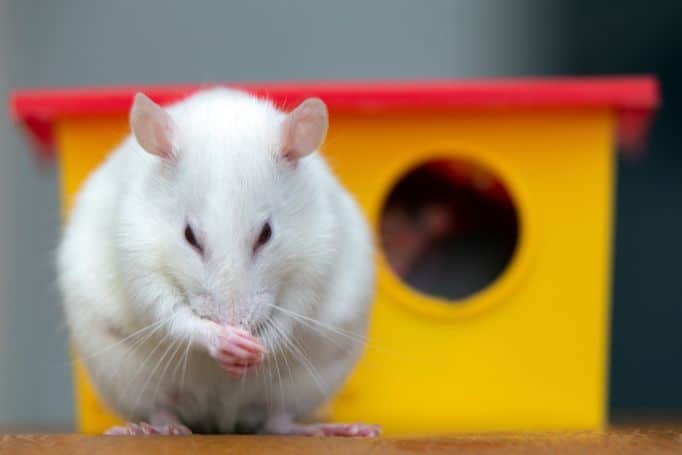Many people wonder whether rats cry or not. This article aims to provide an in-depth look at rat behavior and the science behind their tears. We will also explore some misconceptions about rat tears and crying.
Rats are often seen as pests and are not usually thought of as animals that can express emotion. Luckily, as more people get experience and exposure to rats, it’s become more clear that rats are actually fantastic little rodents that are great pets.
Recent studies have shown that rats are capable of complex emotions and social behaviors. This has led scientists to investigate whether rats cry, and how they communicate their feelings to other rats.
In this article, we’ll answer all of these questions!

Understanding Rat Behavior
Are rats capable of expressing emotion?
Yes, rats are capable of expressing a wide range of emotions, including joy, fear, and sadness. They are social animals that form close bonds with other rats and can experience grief when a companion dies.
What are the different types of tears that animals produce?
There are three types of tears that animals produce: basal, reflex, and emotional. Basal tears are produced constantly to keep the eyes moist, while reflex tears are produced in response to an irritant, such as smoke or dust.
Emotional tears, on the other hand, are produced in response to an emotional state, such as joy, sadness, or pain.
How do rats communicate with each other?
Rats communicate with each other using a variety of vocalizations, body language, and scent. They have a complex system of social hierarchy and use vocalizations to establish their position in the group.
Rats also use scent to communicate, leaving trails of urine and feces to mark their territory and communicate with other rats.
The Science of Rat Tears
What is the composition of rat tears?
Rat tears are similar in composition to human tears, containing water, salt, and proteins. They also contain a hormone called prolactin, which is associated with maternal behavior and social bonding.
How does the production of tears vary across different species?
The production of tears varies across different species. Some animals, such as dogs and cats, produce tears to keep their eyes moist but do not produce emotional tears.
Other animals, such as elephants and primates, have been observed producing emotional tears.
What are the physiological and psychological reasons behind crying in rats?
The physiological and psychological reasons behind crying in rats are not fully understood. Some researchers believe that rats produce emotional tears as a way to communicate their distress to other rats.
Others believe that crying in rats is a byproduct of physiological changes in the body, such as increased heart rate and respiration.
Do Rats Cry? Facts vs. Fiction
What are some misconceptions about rat tears?
One misconception about rat tears is that they are only produced in response to pain or fear.
However, recent studies have shown that rats also produce emotional tears in response to positive experiences, such as social bonding and play.
What does research say about rat crying behavior?
Research on rat crying behavior is still in its early stages, but some studies have shown that rats do produce emotional tears in response to a variety of stimuli.
One study found that rats produced emotional tears when separated from their mothers, while another study found that rats produced tears during play.
How do rats express distress or sadness?
Rats express distress or sadness through a variety of behaviors, including changes in vocalizations, decreased activity, and changes in appetite.
They may also seek out social contact with other rats or display behaviors associated with anxiety, such as grooming or self-grooming.
Conclusion
While research on rat crying behavior is still in its early stages, it is clear that rats are capable of producing emotional tears in response to a variety of stimuli. Rats are also capable of expressing a wide range of emotions and social behaviors, and should be treated with respect and compassion.
- How Long Do American Eskimo Dogs Live? Important Factors and Care Tips - September 29, 2023
- Do American Bulldogs Need Grooming? Essential Tips and Care Guidelines - September 29, 2023
- Do Bengal Cats Enjoy Playing? Essential Tips for Keeping Them Active - September 29, 2023